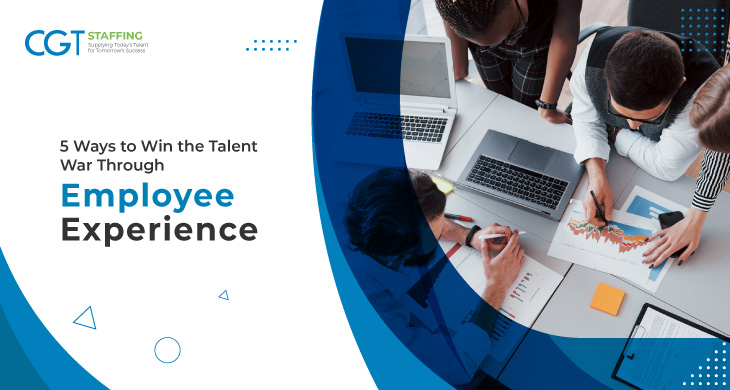As businesses and industries undergo a global reset, the competition to survive and expand is fierce. Recruitment and hiring are not exempt from the struggle. In fact, Forbes indicates that retaining talent has become more tenuous in 2022 than at any point in the recent past. As a result, businesses necessarily become even more aggressive in their hiring practices. In order to win the competitive war for talent, businesses may need to make significant changes in business talent acquisition strategy frameworks. One notable area worthy of frank assessment is the realm of employee experience.
This blog explores several approaches that firms can leverage to offer a better experience to their employees and increase retention amid aggressive hiring from competitors. Read on to discover more.
Table of Contents
Enrich Experience in Hiring and Onboarding
Employee experience begins with the hiring and onboarding process. In any business, these are the initial interactions that a new hire will have with an employer. It is important for employers to remember that the initial interface will play a significant role in every aspect of the employee-employer relationship. With this in mind, businesses should take all possible steps to enhance the quality of the initial experience. Generally speaking, these areas can prove to be good starting points:
- Strengthen communication between recruiters and candidates.
- Enrich the interview experience, particularly for virtual interviews.
- Streamline onboarding and initial orientation for new hires.
- Boost focus on keeping new hires engaged and motivated.
- Develop protocols that make team integration smoother.
Offer Competitive and Sustainable Employee Benefits
Competitive hiring practices always revolve around compensation and benefits. Headhunters from competing firms can and do tempt high performers away from other businesses. Employees themselves may be in touch with third parties, such as mortgage recruiters, to locate better-paying roles. Unless addressed, this can quickly lead to a business losing its best performers, and by extension, its ability to deliver productive output.
Therefore, any effort that is aimed at improving employee experience should also focus on improving compensation and benefits plans offered. However, this can be more complex than simply elevating pay scales. Businesses should try working within certain parameters, such as these:
- Offering compensation in-line with market averages for each role.
- Positioning health insurance as a major employer value proposition.
- Including more non-monetary (but meaningful) benefits in the mix.
- Developing policies for performance-based bonuses and rewards.
- Ensuring that payroll costs do not threaten business sustainability.
Understand Employee Needs and Deliver on Them
Businesses that fail to evolve in response to market changes usually fail to survive. Over time, the same can be said of evolution relative to the expectations of your employees. Companies should accept that workforces in the “New Normal” have very different needs and behaviors than pre-pandemic workforces. These can range from a greater focus on workplace safety to a greater need for more comprehensive health benefits; but when these needs and behaviors are not accommodated, businesses are likely to lose high-quality talent. To avoid losing valuable team members to the competition, employers need to understand what their workers want, and deliver on those expectations.
Create Channels for Skill Acquisition and Enrichment
Opportunities to learn new skills (or enrich existing ones) have gained a lot of appeal among the workforce, especially young professionals. An employer that offers professional skills workshops can visibly demonstrate its commitment to its employees’ professional growth.
This, in turn, can become a powerful motivator for workers to stick with a business that invests in their success. Skill enrichment and enhancement can also help a business fill key proficiency gaps internally, without depending on external backfill. On the whole, the presence of these opportunities helps to retain existing workers as well as attract new talent.
Build Support Material to Help Struggling Employees
Empathy and support are two increasingly important employee needs that companies can no longer afford to ignore. Showing employees that they are valued, and their contributions are meaningful to business success is one of the best ways to retain them. This is especially true when usually dependable employees begin to show signs of burnout or distress.
Companies must necessarily work on developing policies and support material that can help their employees cope with these difficulties. Resources like these encourage employees to be more forthcoming about challenges they face, and can also help workforce managers address any challenges early on.
Working with Specialized Hiring Services
Businesses will only continue to refine their aggressive recruitment efforts. It’s not uncommon that smaller firms do not have the resources to challenge their larger competitors in the struggle for talent. Fortunately, recruiting service providers can help level the playing field. Employers would do well to consider working with local partners, such as a staffing agency in Pittsburgh or a comparable provider of national reach.
